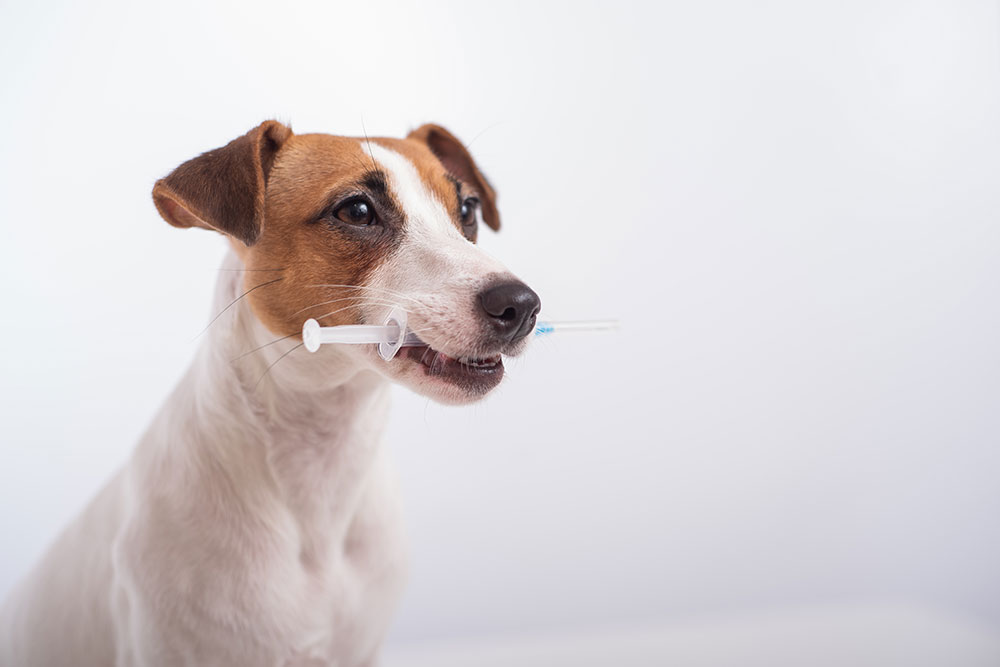Vaccinations are a vital part of your pet’s lifelong health plan. By protecting your dog or cat from serious and contagious diseases, vaccines not only extend their life—but also help protect other animals and people in your community.
At Monte Vista Animal Hospital in Reno, Nevada, we tailor vaccination plans to your pet’s age, lifestyle, and risk factors. Whether you’ve just adopted a new puppy or are caring for a senior pet, we’re here to make the process simple and stress-free.
Why Vaccines Matter
Protection from Dangerous Diseases
Vaccines protect pets from life-threatening illnesses such as:
- Rabies
- Distemper
- Parvovirus
- Feline leukemia
- Kennel cough
These conditions can spread rapidly and are often fatal if left untreated. Vaccination is one of the most effective and affordable ways to safeguard your pet’s health.
Supporting Public Health
Diseases like rabies can spread from animals to humans. Keeping your pet vaccinated helps reduce the risk of zoonotic disease transmission and is often required by law.
World Rabies Day: Can My Pet Get Rabies? – AAHA
Long-Term Health & Cost Savings
Preventive care is more affordable—and less stressful—than treating serious illness. Routine vaccinations help avoid costly emergency visits and support your pet’s overall wellness.
Building a Pet Vaccination Schedule
For Puppies & Kittens
Most young pets start vaccines at 6–8 weeks of age, with boosters every 3–4 weeks until 16 weeks old. Core vaccines include:
- Puppies: Distemper, parvovirus, rabies
- Kittens: Feline distemper (panleukopenia), upper respiratory viruses, rabies
Dog’s Life Stages – AAHA
Cat’s Life Stages – AAHA
For Adult Dogs & Cats
Once the initial series is complete, most adult pets require core vaccines every 1–3 years, depending on the vaccine type and their lifestyle.
- Dogs may need vaccines for Bordetella, leptospirosis, or Lyme disease.
- Cats may need feline leukemia vaccines.
Kennel Cough – AKC
Canine Infectious Respiratory Disease – AVMA
For Senior Pets
Older pets may not need vaccinations as frequently, but they still require protection. Their immune systems change with age, and certain vaccines—like rabies—remain essential. We’ll help determine the right schedule during your pet’s annual exam.
Vaccines Explained
For Dogs
- Rabies: Required by law in many areas; prevents a deadly virus that can affect pets and people.
- Distemper & Parvovirus: Protect against highly contagious, often fatal viruses. Read more: Parvovirus Update – AAHA and More on Canine Distemper – AVMA
- Leptospirosis & Lyme Disease: Recommended based on lifestyle and region. Leptospirosis Guide – AAHA
For Cats
- Rabies: Critical for outdoor and indoor cats alike.
- Feline Distemper & Respiratory Diseases: Core for all cats. Feline URI Overview – ASPCA Pro
- Feline Leukemia (FeLV): Especially important for kittens and cats that go outdoors.

Are There Risks to Vaccinating?
Mild, Temporary Side Effects
It’s normal for pets to feel a bit tired or sore after vaccinations. Common side effects include:
- Mild fever
- Decreased appetite
- Soreness at the injection site
These typically resolve within 24–48 hours.
Rare But Serious Reactions
Severe allergic reactions are rare but possible. Symptoms include:
- Facial swelling
- Vomiting
- Trouble breathing
Seek immediate veterinary care if you notice these signs.
Aftercare and Ongoing Checkups
Monitoring at Home
Keep a close eye on your pet after vaccines. If anything feels “off,” don’t hesitate to reach out. Most pets bounce back quickly with no complications.
Yearly Wellness Exams
Vaccinations are just one part of your pet’s preventive care. Annual check-ups allow us to:
- Review vaccination needs
- Detect changes in health early
- Discuss lifestyle and exposure risks
Why Regular Vet Visits Matter – AAHA
Vaccines protect your pet at every stage of life—from curious puppies and kittens to senior companions. They’re safe, effective, and essential for long-term wellness.
At Monte Vista Animal Hospital, we create custom vaccination plans tailored to your pet’s unique needs. If you’re unsure about your pet’s vaccination status or want to learn more, we’re here to help.
Contact us today to schedule your pet’s wellness visit. Let’s keep them protected, happy, and healthy—together.






Leave A Comment